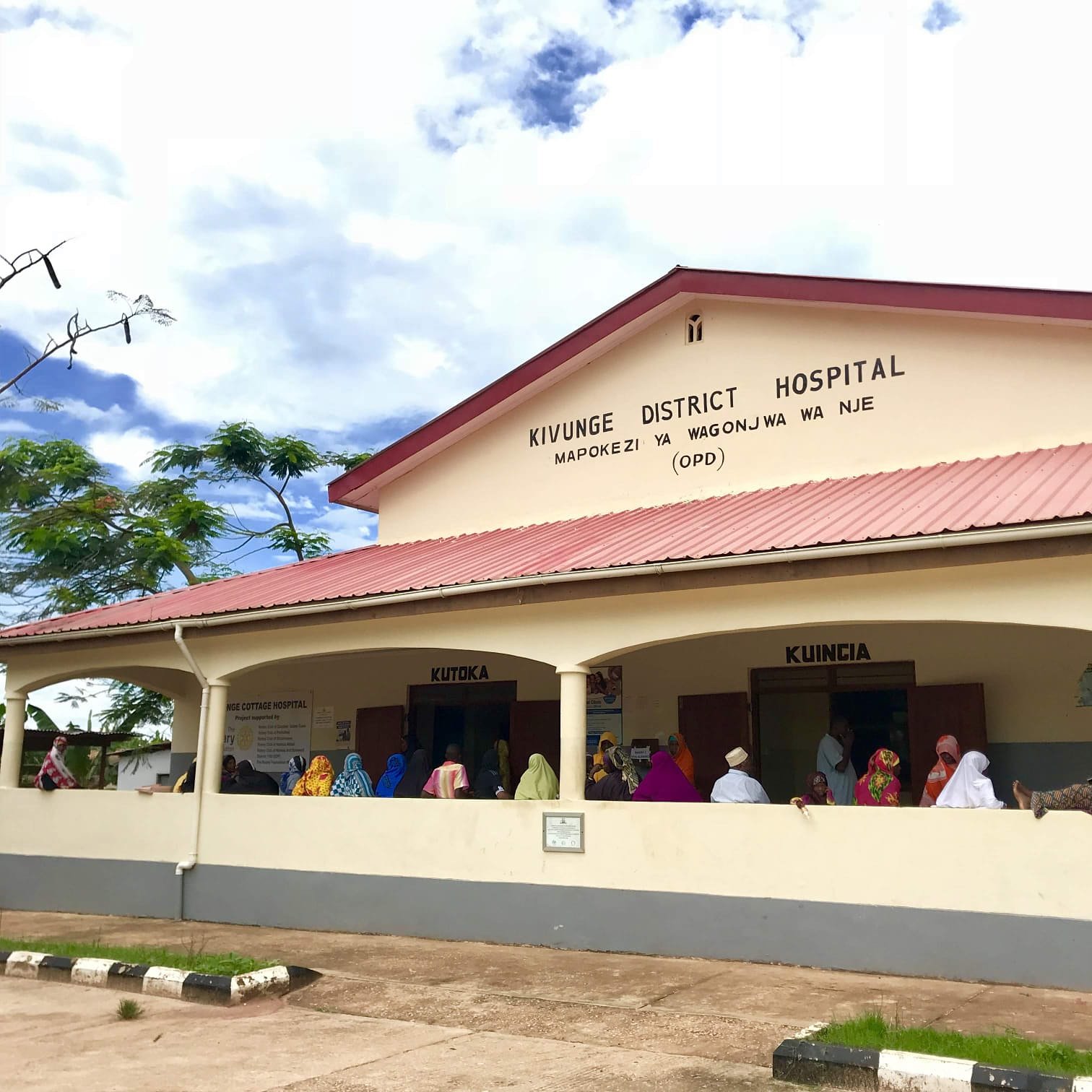
Written by Dr Nikki Biggs, consultant in emergency medicine & HIPZ trustee (IG @zanzibar_hipz)
Edited by Anisa Jafar & Zosia Bredow
Zanzibar is an archipelago within the United Republic of Tanzania. Whilst its reputation as a luxury holiday destination is renowned, and it does fare better than the mainland in several health indicators, there remains a very long way to go and geographical inequity is significant. 1 Poverty, maternal-mortality, access to electricity, road infrastructure and infectious diseases are amongst the significant healthcare challenges faced by Tanzania as whole.2
HIPZ was established in 2006 by Ru MacDonagh following a visit to Makunduchi Hospital – a small cottage hospital serving 80,000 people in the South of Zanzibar’s main island Unguja. Makunduchi hospital was in need of structural improvements, equipment and staff. Following discussions with the Ministry of Health (MoH) and some simple, quick, inexpensive changes, a partnership was established between the MoH and what was to become HIPZ with a shared goal to improve the hospital.
Since then HIPZ, a registered charity, has invested in a number of key areas: staff training programmes, building a maternity ward, setting up a Kangaroo Mother Care (KMC) unit, improving surgical services and creating stronger systems to enable the hospital to run more effectively. This successful partnership in Makunduchi led the MoH, in 2012 to invite HIPZ to work with Kivunge Hospital in the North of Unguja, serving over 250,000 people.

HIPZ has been especially active in facilitating the improvement in maternal and neonatal mortality. A large part of this initiative has been introducing Kangaroo Mother Care (KMC) to the hospitals. KMC is a WHO-advocated method for caring for pre-term and low-birth weight infants where they are continually carried, skin-to-skin, by the mother with a view to improving neonatal outcomes.3, 4 There are now KMC buildings at both Makunduchi and Kivunge and HIPZ have supported the development of regional and national KMC training days.
HIPZ has also engaged in a 3-year programme to increase access to quality mental health services following a successful bid to Comic Relief. Key activities included the introduction of the Friendship Bench – a problem solving therapy designed in Zimbabwe to support those with anxiety and depression.5 HIPZ has also been involved in training and supporting clinicians delivering mental health clinics using the WHO Mental Health Gap Action Programme as well as developing an effective collaboration between traditional and religious healers.6
Volunteer doctors have been supported by HIPZ in undertaking placements at both hospitals for well over a decade. I signed up to their programme in 2017 and I am now a trustee. The volunteer role is a multi-faceted one including ward rounds, involvement in education (locally and more widely) and supporting the local MDT. The team work closely alongside the MoH and local management teams at both hospitals. Personally, it has been one of the most rewarding things I have ever done.
Despite the challenges the pandemic has presented, it is an incredibly exciting time to be involved with the organisation. Programmes are being extended into primary care facilities, two new Emergency Departments are due to open and Zanzibar’s health research programme is being strengthened.
HIPZ is a little fish in the big pond of global healthcare, but we have supported the local teams over the past 14 years with some truly phenomenal achievements. I am incredibly proud to be part of the team that work with HIPZ and with an organisation that has a true commitment to collaborative working and facilitating sustainable change.
To find out more about HIPZ you can contact [email protected] or take a look at the website www.hipz.org.uk.
References
- World Bank. Zanzibar Poverty Assessment. 2017. Available at http://documents1.worldbank.org/curated/en/778051509021699937/pdf/120689-WP-P164456-PUBLIC-11-3-17-25-10-2017-20-15-5-ZanzibarPovertyAssessment.pdf
- World Bank. Tanzania: Country Brief. 2009. Available at https://openknowledge.worldbank.org/bitstream/handle/10986/2629/486010PUB0Tanz101Official0Use0Only1.pdf?sequence=1&isAllowed=y
- Boundy EO, Dastjerdi R, Spiegelman D, Fawzi WW, Missmer SA, Lieberman E, Kajeepeta S, Wall S, Chan GJ. Kangaroo mother care and neonatal outcomes: a meta-analysis. Pediatrics. 2016 Jan 1;137(1).
- World Health Organization. Department of Reproductive Health and Research: Kangaroo Mother Care A Practical Guide. Available at http://apps.who.int/iris/bitstream/handle/10665/42587/9241590351.pdf;jsessionid=8FAF0A1DEA569A19DC81AC92C582F211?sequence=1
- Chibanda D, Bowers T, Verhey R, Rusakaniko S, Abas M, Weiss HA, Araya R. The Friendship Bench programme: a cluster randomised controlled trial of a brief psychological intervention for common mental disorders delivered by lay health workers in Zimbabwe. International journal of mental health systems. 2015 Dec;9(1):1-7.
- WHO. mhGAP Mental Health Gap Action Programme. 2007. Available at https://www.who.int/mental_health/evidence/mhGAP/en/
